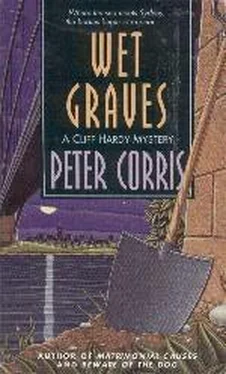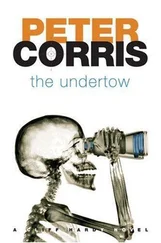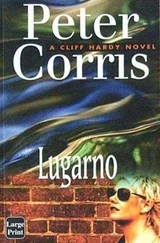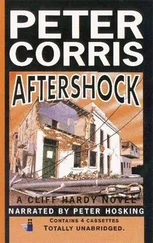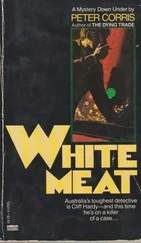Peter Corris - Wet Graves
Здесь есть возможность читать онлайн «Peter Corris - Wet Graves» весь текст электронной книги совершенно бесплатно (целиком полную версию без сокращений). В некоторых случаях можно слушать аудио, скачать через торрент в формате fb2 и присутствует краткое содержание. Жанр: Криминальный детектив, на английском языке. Описание произведения, (предисловие) а так же отзывы посетителей доступны на портале библиотеки ЛибКат.
- Название:Wet Graves
- Автор:
- Жанр:
- Год:неизвестен
- ISBN:нет данных
- Рейтинг книги:5 / 5. Голосов: 1
-
Избранное:Добавить в избранное
- Отзывы:
-
Ваша оценка:
- 100
- 1
- 2
- 3
- 4
- 5
Wet Graves: краткое содержание, описание и аннотация
Предлагаем к чтению аннотацию, описание, краткое содержание или предисловие (зависит от того, что написал сам автор книги «Wet Graves»). Если вы не нашли необходимую информацию о книге — напишите в комментариях, мы постараемся отыскать её.
Wet Graves — читать онлайн бесплатно полную книгу (весь текст) целиком
Ниже представлен текст книги, разбитый по страницам. Система сохранения места последней прочитанной страницы, позволяет с удобством читать онлайн бесплатно книгу «Wet Graves», без необходимости каждый раз заново искать на чём Вы остановились. Поставьте закладку, и сможете в любой момент перейти на страницу, на которой закончили чтение.
Интервал:
Закладка:
I guided the launch out to what Ray had called ‘the dead set middle’. The water was being chopped up by a light breeze, and it was cold on the deck. Loomis had brought along a heavy police overcoat; I was still in my shirt and jacket; unless we got it over with quickly I was going to be shivering. “Here. And I think what you’re looking for is over in that direction.”
The frogmen nodded, pulled down their masks and went over the side. One of the constables handed down the tool kit.
“Rather them than me,” Loomis said.
I nodded. “My mate needed a half-hour shower afterwards. And some brandy. Wouldn’t have anything with you, inspector?”
Loomis didn’t reply. A ferry passed us, and a few curious passengers watched our boat as it tossed lightly in the wake. One of them flicked a cigarette butt into the water and Loomis glared. “I’d like to make him jump in and fish it out. To answer your question, there’s bound to be a drop of some grog aboard for medicinal reasons. If we get it, we’ll get it.”
A couple of sailing boats gave us a wide berth, the way cars keep clear of police cars on the road, and a rubber boat with a powerful outboard skipped past on the north side. There was a constant hum of traffic noise, road and rail, from the bridge. After what seemed like an hour but was probably only half that, one of the frogmen surfaced and signalled. The launch edged towards him and the cops ran a line over the side. The frogman went under again and we waited. The line quivered and the sergeant pressed a button on the electric winch. The line tightened and came in slowly and steadily. The constables moved to the side, with heavy gloves on their hands and hooks and lengths of plastic rope at the ready.
The water broke and a dripping, grey-green package came to the surface. It was about six feet long, sealed at both ends. A length of chain hung from one end, free of the line which the frogmen had wound around it. The policemen lifted the bundle over the side and laid it on the deck. Water and a greeny-black ooze flowed from inside it. I expected a limb of some kind but there wasn’t any. Loomis stepped back, but not quickly enough to avoid the water splashing over his shoes.
“Shit!” He took out a handkerchief and blew his nose. “Get on with it, sergeant. And don’t let’s forget the anchors. What are they, Hardy? Oil drums?”
I was staring at the canvas package and the chain and thinking of burials at sea, honourable and dishonourable deaths- floggings and keel-haulings. It all felt like a step back into history, back beyond the time of the building of the bridge, back to the beginnings. I shivered, and not because of the cold. “Yeah,” I said, “oil drums, recycled.”
Loomis gave a short laugh and bent to examine the canvas. He straightened up and wiped his face with the back of his hand. “Not much we can do with this. Must be hundreds of places sell canvas like that. Same with the chain. Would you say this Lithgow was a bright bloke?”
“Very.”
Loomis sighed. “That’s not going to help.”
The frogmen and other cops worked hard and efficiently. They got four canvas bundles and four concrete plugs the size of a couple of house bricks from the bottom. Loomis watched the operation sourly; he turned his collar up against the wind and rubbed his hands together. When the last dive and lift was complete, the senior frogman pulled up his mask.
“That’s it, inspector.”
“Thanks. See any weapons down there?”
The frogman shook his head. “The bottom’s like all silty and soft. Those plugs had really settled in. Whoever put them down there knew what he was doing.”
Loomis scarcely heard him. He was looking towards the quay where a group of people had assembled. “Bugger it,” Loomis said. “We’ve been spotted. Where do we dock, sergeant?”
“Harris Street, sir. Wharf 25.”
“Anywhere else we could go?”
“Sans Souci?”
Loomis shook his head. “Just get us there as fast as you can, and get on the radio and tell them not to let any press near the wharf. Can you do that?”
The sergeant almost saluted and hurried forward to the cabin. The launch’s engines roared into life, and we churned the water as we moved fast towards the bridge. We passed under it and I felt the massive structure above me like a heavy, grey iron cloud, blotting out the pale afternoon sun. “What now?” I said.
Loomis hunched his shoulders inside the heavy coat. “Nothing nice,” he said. “We open up and take a look. Then we ask their nearest and dearest to do the same. Got any idea what they’ll look like, Hardy?”
I shook my head. “You?”
“I’ve seen a few floaters in my time. Mostly banged about by whoever killed them and by the rocks. It’s not pretty. But all wrapped up like this? I don’t know.”
The launch changed course and the canvas-wrapped bodies moved a little on the deck as if protesting about being raised from their cold, wet graves.
20
“Do you want to be on hand for this, Hardy?” Loomis smoked a thin cigar as we watched the bodies and their anchors being unloaded at the police dock.
“What happens now?”
“Pathologist’s on the way. We’ll open ‘em up and take a look. See what the identification possibilities are. After that, autopsy and inquests and the rest of the circus. Any idea how long they’ve been down there?”
I shrugged. “Meredith’s probably got the longest missing one in his files. You’d better ask Wren.”
Loomis nodded and blew smoke out towards the water. We were standing behind a glass shelter a little back from the dock. The light had faded, and everything around was taking on the grey colour of the canvas bundles. “Better phone him. If I know Ralph, he won’t have anything to do with this side of things.”
“Frank Parker said he was a good man, Wren.”
“He is. Good desk man. Tireless. D’you want a smoke?”
“No, thanks. Have you got a bucket on you?”
Loomis laughed. “Some tough guy.”
But an hour later it was me who was standing inside the room where the bundles had been unwrapped and Inspector Loomis who was away some-where retching his guts up.
The pathologist, Dr Carstairs, was a slim, handsome type who looked too young to be having anything to do with death. That impression vanished as soon as he opened his mouth; his voice was rough-edged and unemotional. “Get cracking, Mr Bennett.”
Carstairs buttoned up his white coat and pulled on rubber gloves. His assistant, evidently named Bennett, did the same, and Carstairs signalled to him to use bolt cutters on the chain and a knife on the stitching of the canvas. The bundles had been neatly sewn along one side in big, strong stitches. “No telling,” Carstairs said. “Gas from the bodies is the story here. Could swell up and burst, in which case you’ll have guts and muck all over the place, or it could go the other way-gas could be absorbed and the body would shrivel.”
Loomis nodded, still very tough. “What decides that, doctor?”
“State of the body when living-age, condition, last meal and manner of death.”
The assistant was still working on the chains. Nothing yet. “What are the chances of identification in both cases?” I said.
“Difficult, either way. Not like with a buried corpse. There, as you’d know, inspector, the bacteria in the earth get to work and you get putrefaction pretty quickly, and destruction of the tissue. Lots of crawly things around to help. Here, you’ll get preservation of the tissue because the only active bacteria are in the body. But there’ll be mould and such. Parts of the face could stick to the canvas. We’ll see.”
Bennett got the chains off and went to work on the stitching. The bundles were lying on two wide, metal tables which were already awash with water and other matter leaking from inside. The room we were in had a concrete floor and bare walls, artificial light. It smelled strongly of disinfectant, which was starting to be overlain by the smell of sea water and something else. Bennett cut the stitches of each bundle in turn and pulled aside the seam on the first.
Читать дальшеИнтервал:
Закладка:
Похожие книги на «Wet Graves»
Представляем Вашему вниманию похожие книги на «Wet Graves» списком для выбора. Мы отобрали схожую по названию и смыслу литературу в надежде предоставить читателям больше вариантов отыскать новые, интересные, ещё непрочитанные произведения.
Обсуждение, отзывы о книге «Wet Graves» и просто собственные мнения читателей. Оставьте ваши комментарии, напишите, что Вы думаете о произведении, его смысле или главных героях. Укажите что конкретно понравилось, а что нет, и почему Вы так считаете.
